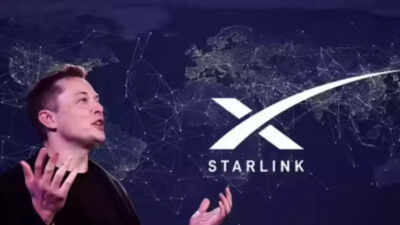Security topmost priority: Elon Musk’s Starlink may have to share data on seized kits under Indian satcom permit; US company was unwilling to…

Elon Musk’s Starlink may now be required to share user data under its new satcom permit from the Indian government. This includes details of satellite kits seized in India, especially in the North-East region—information the company had previously declined to share.This comes after Indian security agencies raised concerns over the suspected misuse of Starlink devices along border areas. India’s security agencies have pointed out the misuse of Starlink devices in Indian territory, especially in the border areas, the Economic Times said, quoting officials.Authorities flagged instances where Starlink kits were found operating without authorisation. However, Starlink had not been cooperating in providing details of the seized devices, instead asking Indian security agencies to route requests through US law enforcement or international protocols.The new licensing condition now compels Starlink to comply with Indian regulations and cooperate with local security agencies on data requests. This prompted the ministry of home affairs (MHA) to write to the department of telecommunications (DoT) in March, urging a probe into the matter, officials told ET.The DoT has not yet submitted its report to the MHA.Previously, Starlink avoided direct cooperation, insisting that security agencies route their requests through US law enforcement or international channels. This non-cooperation prompted the Ministry of Home Affairs to request the Department of Telecommunications to investigate the situation in March.The DoT’s report to the MHA remains pending.Officials indicate that the new satcom licence will compel Starlink to share these details, with potential consequences including show cause notices or licence revocation for non-compliance.SpaceX, Starlink’s parent company, has not responded yet.The DoT received instructions to investigate and implement protective measures for national security.With Bhutan and Bangladesh now offering commercial Starlink services, experts suggest potential complications from smuggled terminals, as precise geofencing of international borders presents challenges.Experts warn that the situation could become more complex as Bhutan and Bangladesh have started commercially offering Starlink services, raising the risk of terminals being smuggled into India. Geofencing may not effectively track exact international borders, posing further security challenges.Security remains the top priority for satellite communication (satcom) in India. So far, none of the three licensed players — Bharti-backed Eutelsat OneWeb, Reliance Jio-SES, and Starlink — have received final security clearances, which continues to delay commercial rollouts.Officials said Jio-SES has nearly completed its demos, while Eutelsat-OneWeb will take longer. Both companies already have satcom permits and approvals from India’s space regulator, IN-SPACe, for over two years. Starlink, however, is still awaiting clearance from the regulator.As per rules, satcom license holders must monitor all data traffic, establish satellite earth stations and control centers within India, and ensure that all traffic to or from India routes through domestic gateways. They are also required to create buffer zones along international borders.A government official told the Economic Times that, “In case of violation of the license conditions, the licensor (DoT) may take suitable action including suspension, revocation or termination of the license and imposition of financial penalty on the licensee.”In December last year, security agencies discovered Starlink devices alongside weapons in Manipur. Another illegal Starlink device was found in the Andaman and Nicobar Islands.Starlink also ran into trouble in 2021 when it began accepting bookings and collecting advance payments from Indian users without regulatory approval. The DoT ordered the company to stop and issued a public advisory. Starlink eventually canceled the bookings and refunded users.





